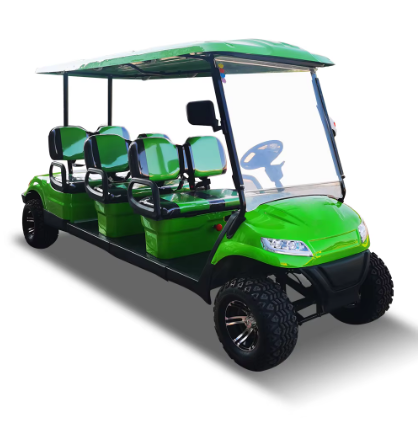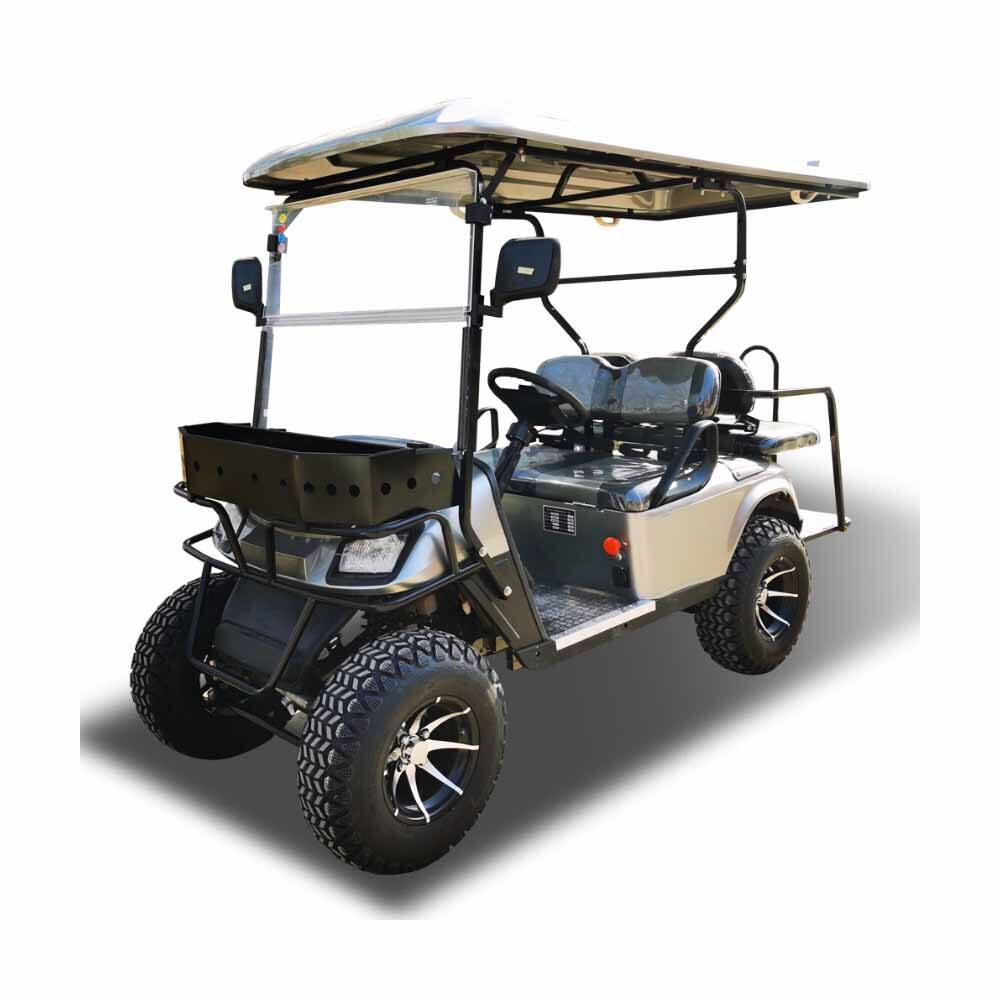Maximizing Delivery Efficiency with Golf Cart Storage Solutions
The rising demand for quick, efficient local deliveries has sparked innovative solutions in last-mile logistics. Golf cart cargo configurations have emerged as a game-changing approach for businesses seeking cost-effective and environmentally friendly delivery options. These versatile vehicles, when properly configured, can transform into powerful delivery workhorses that navigate tight spaces while carrying substantial loads.
From restaurants and retail stores to campus services and resort operations, organizations are discovering the untapped potential of golf cart cargo solutions. The key lies in selecting and implementing the right configuration to match specific delivery needs while maximizing available space and maintaining vehicle performance.
Essential Golf Cart Cargo Components
Rear Cargo Beds and Boxes
The foundation of any delivery-focused golf cart configuration starts with a robust rear cargo bed. These platforms come in various sizes and materials, from aluminum to heavy-duty steel, each offering distinct advantages. Aluminum beds provide lightweight durability perfect for frequent deliveries of moderate loads, while steel configurations support heavier cargo requirements.
Cargo boxes complement basic beds by adding weather protection and security. Modern designs feature lockable compartments, adjustable shelving, and even temperature-controlled sections for food delivery applications. The most effective configurations incorporate modular components that can be easily modified based on changing delivery needs.
Side-Mounted Storage Solutions
Maximizing the vertical space along the cart's sides presents additional cargo opportunities. Side-mounted racks and containers effectively double the available storage area without significantly impacting the vehicle's footprint. These configurations work particularly well for carrying longer items or organizing multiple small deliveries.
Installation of adjustable shelving systems allows for customized compartmentalization, enabling efficient organization of different-sized packages or special handling requirements. Weather-resistant side curtains can be added to protect cargo while maintaining easy access during deliveries.

Specialized Industry Configurations
Food Service Delivery Solutions
Restaurants and catering services require specialized golf cart cargo configurations that maintain food quality and temperature during transport. Insulated containers with separate hot and cold compartments ensure proper temperature control. Additional features like spill-proof shelving and secure drink holders prevent accidents during transport.
The most effective food delivery configurations include easy-clean surfaces, proper ventilation to prevent condensation, and quick-access doors that minimize temperature loss during multiple deliveries. Some designs incorporate warming elements or cooling systems powered by the cart's electrical system.
Retail and Package Delivery Setups
Retail deliveries demand flexible configurations that accommodate various package sizes while maintaining organization and efficiency. Modular shelving systems with adjustable dividers allow for optimal space utilization and prevent cargo shifting during transport. Specialized sorting systems help drivers maintain delivery order and track packages effectively.
Security features become crucial in retail delivery configurations. Lockable compartments, GPS tracking integration, and scan-verified access points ensure package safety and delivery confirmation. Some advanced setups include electronic inventory management systems that sync with order processing software.
Performance Optimization Considerations
Weight Distribution and Balance
Proper weight distribution plays a crucial role in maintaining golf cart stability and performance. Strategic placement of cargo areas and careful load balancing ensure safe operation while maximizing carrying capacity. The most effective configurations consider the cart's center of gravity and incorporate adjustable components to maintain optimal balance under varying load conditions.
Advanced suspension modifications and reinforced chassis components may be necessary for heavy-duty applications. Regular weight distribution assessments and load capacity guidelines help prevent operational issues and extend vehicle lifespan.
Power and Range Management
The added weight of cargo configurations impacts the cart's power requirements and operating range. Enhanced battery systems or motor upgrades might be necessary for maintaining adequate performance under load. Smart power management features help optimize energy usage during delivery routes.
Implementation of regenerative braking systems and efficient route planning tools can extend operating range. Some configurations incorporate solar panels or quick-charge capabilities to minimize downtime between delivery runs.
Future Trends in Golf Cart Cargo Design
Smart Technology Integration
The future of golf cart cargo configurations increasingly involves smart technology integration. Real-time tracking systems, automated inventory management, and route optimization software enhance delivery efficiency. Advanced configurations may include touchscreen interfaces for cargo management and delivery status updates.
Emerging technologies like IoT sensors monitor cargo conditions and vehicle performance, while AI-powered systems optimize load distribution and route planning. These innovations continue to expand the capabilities of golf cart delivery operations.
Sustainable Design Solutions
Environmental considerations drive the development of eco-friendly cargo configurations. Lightweight, recyclable materials reduce energy consumption while maintaining durability. Solar-powered auxiliary systems support temperature control and security features without impacting the cart's primary power source.
Modular designs enable easy component replacement and upgrades, extending the lifespan of cargo configurations while reducing waste. Future developments focus on biodegradable materials and zero-emission solutions for truly sustainable delivery operations.
Frequently Asked Questions
What is the maximum cargo capacity for a standard golf cart?
The maximum cargo capacity varies by cart model and configuration but typically ranges from 400 to 800 pounds for standard golf carts with proper cargo modifications. Custom heavy-duty configurations can support even greater loads, though this may require significant vehicle modifications and safety considerations.
How do weather conditions affect golf cart cargo operations?
Weather protection features like waterproof covers, enclosed cargo areas, and proper drainage systems help maintain delivery operations in various conditions. Temperature-controlled compartments and weather-resistant materials ensure cargo protection regardless of environmental challenges.
What maintenance is required for golf cart cargo configurations?
Regular maintenance includes inspecting attachment points, checking weight distribution, cleaning cargo areas, and verifying security system operation. Periodic assessment of structural integrity and updating weather seals ensures long-term reliability. Professional inspection of custom modifications is recommended at least twice yearly.




